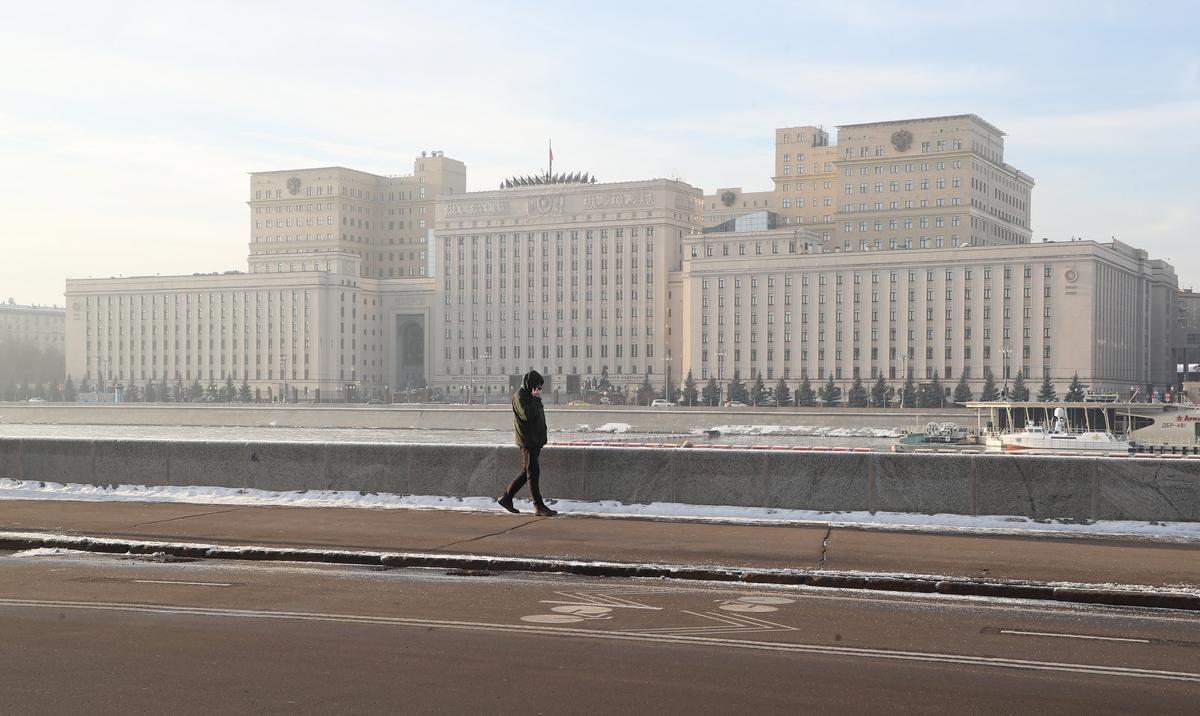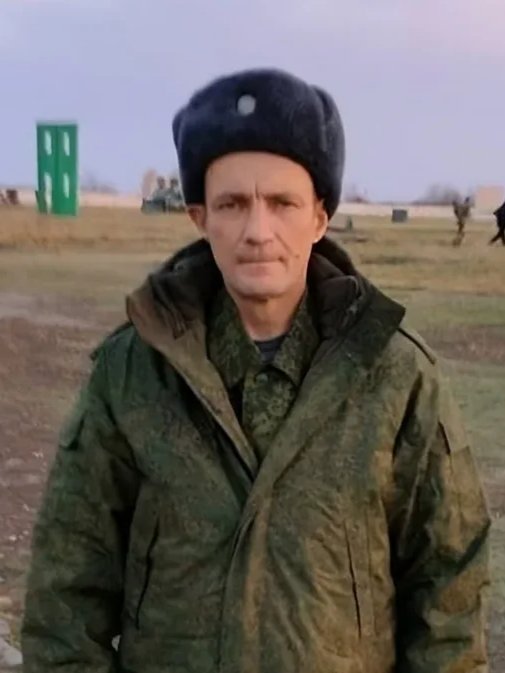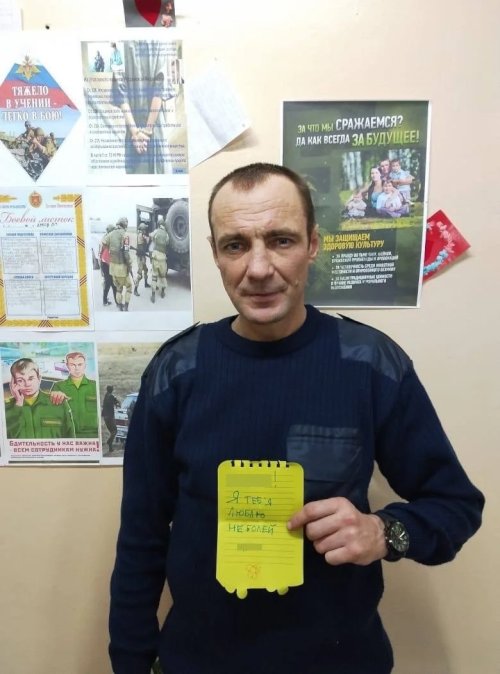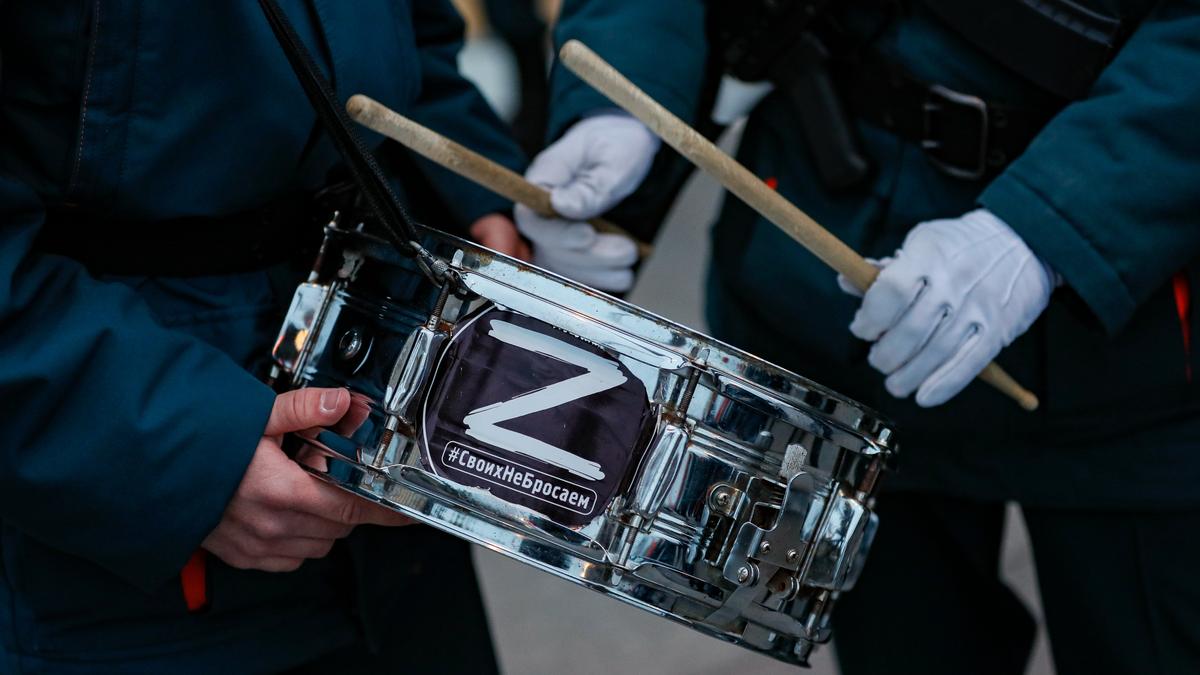Viktor Petrov, a Russian soldier from the Siberian city of Irkutsk who had re-enlisted in the military voluntarily, was found dead on the military base where he was stationed after reporting being tortured by military police. While the military investigative committee in occupied Luhansk concluded that Petrov hanged himself after a bout of heavy drinking, his mother and her lawyer believe that his death was staged to look like a suicide by the same military police who tortured him.
Returned in zinc
Viktor Petrov passed away on 8 May 2023 in a military camp in the Luhansk region of eastern Ukraine. The 40-year-old was found with a pair of trousers tied around his neck, and the investigation into his death confirmed that he died from asphyxiation. However, Petrov’s mother, Nina Yefremenko, and other soldiers who knew Petrov, have rejected the investigation’s conclusion.
Yefremenko’s lawyer Yakov Iontsev agreed with them, noting that the military police had form when it came to staging suicides. According to Iontsev, Petrov was making plans for the future, settling in at his post, and ordering equipment through his mother. He argued that these are not the typical conduct of someone who is suicidal.
“Military command knew that Petrov was unfit for military service but didn’t send him for treatment and didn’t discharge him.”
Petrov’s funeral was held in his hometown of Sosnovka, a small village in the Irkutsk region, on 24 May. Yefremenko described the day as “a blur”. His body was delivered in a zinc coffin with a small window in it through which she could see her son’s face.
“It was definitely him, but even through the glass you could see the thick layer of foundation on his face. What they were plastering over, I never got to find out that day,” Petrov’s mother recalled.

The Russian Defence Ministry building in Moscow. Photo: EPA-EFE / MAXIM SHIPENKOV
A month later, the investigative committee opened a criminal investigation into the cause of Petrov’s death, and specifically whether or not he was driven to suicide. The investigators alleged that Petrov had suffered from chronic alcoholism, a claim that prompted Yefremenko to file a negligence lawsuit against her son’s commanders and the Defence Ministry.
“Military command knew that Petrov was unfit for military service but didn’t send him for treatment and didn’t discharge him,” Public Verdict, a Russian non-profit offering legal assistance to victims of human rights abuses, noted.
A source familiar with the case said that, in theory, had Petrov genuinely suffered from alcoholism, it should have been detected during the medical examination he took when he enlisted.
“But it’s possible that he hid this disorder from the medical commission. The condition isn’t obvious all the time, and Petrov did want to serve in the army,” the source said.
The case was dismissed by the court, and ultimately also by the appellate court. On 21 May, a criminal case against the military police for allegedly driving Petrov to suicide was also dismissed.

Viktor Petrov. Photo: Public Verdict
Re-enlistment
Petrov had previously served in the military from 2002 to 2004. He was stationed in Kunashir, an island in the Russian Far East, and reported enjoying his time there. When he returned, he found work on a farm in his hometown, tending to cattle.
In September 2022, before Putin’s announcement of partial mobilisation, Petrov decided to re-enlist voluntarily, apparently out of fear he would be labelled a coward if he didn’t. However, to prevent him from leaving, his mother hid his passport and military ID.
A source familiar with the case said that, in theory, had Petrov genuinely suffered from alcoholism, it should have been detected during the medical examination he took when he enlisted.
“He was my only son, the breadwinner. There’s plenty to do at home, plenty of work. Why go to war?” But on 21 September 2022, Petrov turned on the TV and saw Putin addressing the nation to announce mobilisation. “Look at what the president is saying! If I don’t go, I’ll be taken away in handcuffs,” he said, according to Yefremenko. “He got on his bike and left.”
Petrov’s mother eventually relented after her son was served with call-up papers, and returned his documents. He then made his way to a training camp in western Siberia. Once there, he and his fellow soldiers did little but drink for three months, but shortly thereafter Petrov was deployed to a support platoon in the Luhansk region.
Trauma ward
Petrov was in regular contact with his mother during his time in Luhansk. After a phone call on 13 April, Yefremenko said she sensed something was wrong. She noticed that her son struggled to speak and was breathing heavily. When he finally revealed that he had been sent to a civilian hospital in Krasnodon, in the Luhansk region, she immediately set out on the long journey to see him.
She found her son in a trauma ward, which she described as dirty and in disarray, remarking that cattle are kept in better conditions. While in hospital Petrov told his mother that having caught him intoxicated, the military police handcuffed him to the ceiling and then beat him with batons and electrocuted him with a taser.
“Viktor wasn’t a trouble-maker. He was sociable. He helped his mother around the farm. Sometimes, he worked part-time for another farmer. He drank, yes. Well, not everyone in our village drinks. But is that any reason to do that to another human being?”
According to Petrov, this was done to everyone who was caught drunk. On other occasions, servicemen were locked in a cage outside and left there for a week without food.
“On 9 April, he was dragged into a military police tent and beaten so badly he was just lying there. They left him like that for three days until his fellow soldiers reached him and dragged him to the hospital in the camp, and from there the military doctor took him to Krasnodon hospital himself, ” his mother explained.
Petrov dissuaded his mother from filing a complaint about the beating because he was afraid he would be punished again.
After 10 days, Petrov was discharged from the hospital with broken ribs. The doctor’s report claimed he had injured himself by falling out of bed while intoxicated. His unit commander wrote a letter, alleging that Petrov consumed cologne, hand sanitiser, and even dissolved fuel tablets in water. Additionally, he wrote that Petrov has been insubordinate and was a negative influence on his fellow soldiers.
“Viktor wasn’t a trouble-maker. He was sociable. He helped his mother around the farm. Sometimes, he worked part-time for another farmer. He drank, yes. Well, not everyone in our village drinks. But is that any reason to do that to another human being?” Petrov’s neighbour wondered.

Viktor Petrov. Photo: Public Verdict / VK
After returning to his unit, Petrov was placed in a military police tent, where he remained until his death. Soldiers who knew Petrov later told his mother that they had not been allowed to visit him, and that the military police had dragged him across the ground using a pair of trousers tied around his neck.
Yefremenko accused Lieutenant Alexander Sergovich from the military police of leaving Petrov in the tent, allegedly with the blessing of the unit commander. Petrov’s comrades later informed Yefremenko that Sergovich had been present when her son’s body was found. According to Yefremenko, the servicemen did not volunteer this information earlier as they had been afraid of retaliation from their commanders.
Court of contempt
After her son’s funeral, Yefremenko was determined to get justice for his death. During the proceedings, she attempted to have Petrov’s body exhumed in order to find additional evidence proving his murder.
A source familiar with the case noted that while an exhumation could potentially provide additional information, the investigation had already ignored significant evidence. According to him, the issue lay in the investigation’s disregard for crucial information. “They were aware Petrov was tortured, they were aware he didn’t receive medical attention, yet they failed to take action,” he said.
The defendants didn’t attend a single court hearing, file any objections to the lawsuit, or contest the complaint being redressed. Iontsev said that the investigation primarily relied on interrogations of Petrov’s fellow soldiers, who asserted that he drank heavily and was not coerced in any way. Consequently, the case was dismissed due to insufficient evidence.
“The investigation concluded that Petrov hanged himself, and did not consider the possibility that someone else’s actions drove him to it. Not only did the investigation fail to establish the reasons for his supposed suicide, it simply ignored the military’s failure to provide him with appropriate medical care, and the signs of Petrov’s alleged torture were put down to him being injured when he fell out of bed,” the source told Novaya Europe.
Iontsev has pledged to appeal against both the investigation and the court’s findings.

